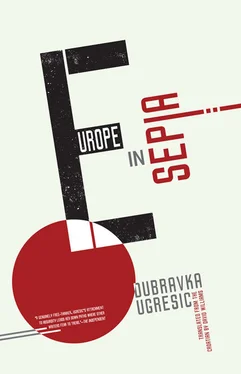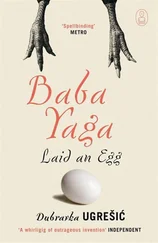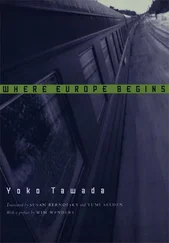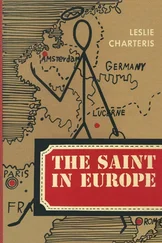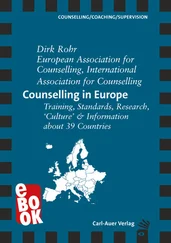The owner of the firm abused his employees in every which way, all in the hope that they’d quit of their own volition, because otherwise, at least according to the statute book, he’d have to pay a severance. He didn’t let anyone go. And then, when the recession had bitten hard, he started laying people off without paying them redundancy money, knowing full well that the Croatian judiciary is paleolithic, and that even if someone did sue, it would take years to get a verdict against him. No one sued. Apart from the cleaner; she accused him of raping her in the toilet. To general amazement, the court believed her. But even this seemed to work in the owner’s favor. Sentences for rape are much lighter than those for embezzlement, corruption, and racketeering. In the sea of criminality, rape is considered shenanigans for grown-up little boys. My friend is on the unemployment agency’s books, and the welfare line. The owner of the firm, he’s a free man. He hasn’t gotten around to serving his time.
I watched this friend of mine race to fill his box with household essentials, a big bag of cornflakes, two or three kilos of flour, sugar, and oil, a kilo of bacon, a marble cake, half a kilo of cheese. . in sum, a Christmas present from Ebenezer Scrooge. I watched him hurry out with his cardboard box, stash it the trunk, and turn the ignition. Any stoppage, any delay would mean confronting his own position, and he doesn’t want that. Christ, anything but that. Silent as shadows, he and his people turn up here once a month to collect their care packages. If they don’t show on the day of the month assigned to them, they permanently lose the right to further assistance.
“Everything looks normal, much more civilized than one would think,” I say, trying to break the silence.
“That’s the problem, everything looks normal,” he replied.
Twenty years ago, the dogs of war “worked over” their Serb compatriots in one of the exhibition center halls. Today, twenty years after the establishment of the sovereign Republic of Croatia, many Croatian citizens — stripped to their undies by their ethnic brothers, their fellow Croats — come here to gather crumbs from under the table.
12.
“Everyone knows Dora’s aunty!”
“Who is she?”
“She’s on TV!”
“Ah. .”
“You’re a writer. .”
“I think I am.”
“Then why aren’t you in our school books?”
“Would you like me to be?”
“I would!”
“I’m sorry, sweetheart. .”
“Even our teacher hasn’t heard of you!”
“Well, if your teacher had read anything, she would have!”
“Our teacher reads heaps, but you’re not in the shops, or in the library, or on TV. . If you were, our teacher would know!”
On December 27, 2012, a regular episode of the show TV kalendar aired on Croatian state television. There was a segment in which an Ustasha war criminal by the name of Jure Francetić was hailed as a “legendary fighter.” In the same segment the Partisans were characterized as a criminal band, running amok in the hills, slaughtering Croats. The only protest against this historical revisionism came from a small NGO called the Citizens’ Initiative. It’s hard for a handful of people to kick against the system. Especially when the system consists of publishers, editors, newspapers, television, radio, teachers, university lecturers, historians, and journalists — all of them engaged in peddling this sort of thing. Why? Because they can. Because they think they’re right. Because they want to please someone who thinks he’s right. But can we conceive of a primetime show on German television declaring the Holocaust a historical fabrication, six million murdered Jews an exaggeration, and Adolf Eichmann the greatest German humanitarian of all time?
In 2012, a group of young Croatian filmmakers shot a short documentary simply entitled Who Are They? The film captures responses to the titular question by ordinary Zagreb residents living near an improvised shelter for refugees. Asked to describe the refugees in their neighborhood, one replied that were dark ; another suggested well-baked ; a third pretty dark-skinned ; a fourth that they’re not folk like us ; a fifth that there are more and more of them ; a sixth that every piece of shit comes to us ; while a seventh, a young man with an easy smile, remarked that they closed Jasenovac, so I don’t know what we’re supposed to do with them! 2
A people who in the twenty years of their state sovereignty has desecrated or destroyed three thousand monuments to the victims of fascism, burned almost three million books 3and “reduced” the Serbian ethnic minority by half, is now writing its history, a history of pure, untainted souls, of hardworking and honest folk who believe in one God. The rest is just collateral damage. People are as mindless as flies; stuck in the collective glue, they think they got there of their own free will. The brutalized girl, she’s collateral damage too, the corpse of a mindless fly in a sticky-sweet national flytrap. .
The same day Croatian hero Ante Gotovina touched down, in Podstrana a young girl was brutally raped. She and her friends had been celebrating Gotovina’s release. The rape of a girl, the blood of a virgin, is a little pagan offering to merciless gods. Residents of Pakoštane, Ante Gotovina’s birthplace, turned out to celebrate divine justice, slaughtering a fattened calf. Rape suspect Roko Šimac was released from investigative detention after a month and a half. Blood analysis showed that the group of young partygoers had not been under the influence of drugs. They were just drunk. The girl whose internal organs were ripped apart was released from the hospital for outpatient care. They say she still doesn’t remember anything.
Let’s go back to the beginning of the story: No one cares about temporal coordinates any more, not when something happened, not what happened. The clock was violently wound back twenty years ago. Franjo Tuđman was the first to mess with its hands, successfully erasing fifty years of Yugoslav social life and state sovereignty, grafting his Croatia onto the Ustasha puppet state of the Second World War. Tuđman managed to salvage and restore many icons of the era: the coat of arms, the flag, the currency, turns of phrase, and much else besides. Hence the temporal disorder that suits some so well. Because temporal confusion allows criminals to not answer for their crimes, nor murders for their murderers, thieves for their thefts, rapists for their rapes. Only in temporal confusion can victims claim they don’t remember anything.
13.
My niece and I are sitting in the back seat. Her dad is driving. We’re coming home from a children’s birthday party. We pass a lingerie advertisement. A beauty in a bra and panties lies stretched out on her side, her head supported by her hand, her indifferent eyes staring out into the murk of the horizon. .
“Look, Aunty, a Croatian fairy. .” my niece murmurs, bleary-eyed at the billboard that has just sprung up in front of her.
“Yes, sweetheart, the fairy of all Croats. .” I say. She’s already asleep. She’s sunken into a sweet dream, as if into the salty sea.

1Severina Vučković, the most popular Croatian pop singer, known also as Seve Nacionale, or simply Seve.
2“The Jasenovac concentration camp was a site of imprisonment, forced labor, and liquidation, primarily of the Serbian Orthodox population, which, in order to create an ethically clean territory, had to be completely eradicated from the Independent State of Croatia, as did Jews and Roma, who were also discriminated against under racial laws. A significant number of Croats — communists and anti-fascists, members of the National Liberation Army of Croatia, their families, and other opponents of the Ustasha regime — also perished in the camp.” (www.jusp-jasenovac.hr)
Читать дальше
